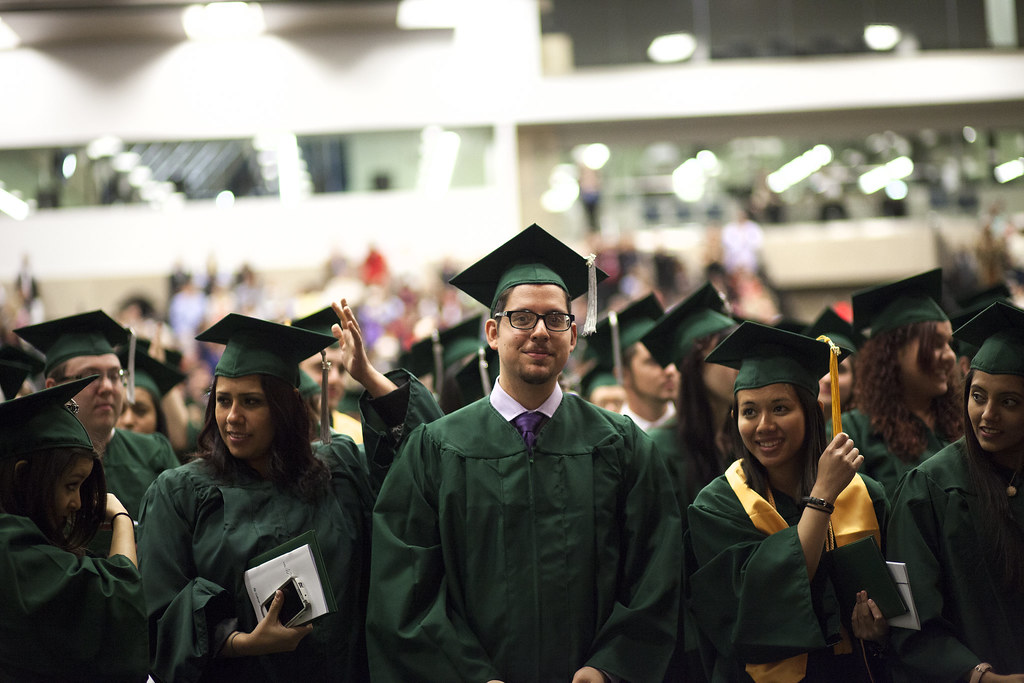In the previous time, job-oriented studies were thought to be limited until someone bags a job. And, for a person pursuing his/her career in the private sector, it’s difficult to get any time for themselves to carry out their studies forward. There was absolutely no scope for further studies for the willing people.
However, the scenario has changed in recent times. The top-grade B-schools in Singapore have understood the urge of these people who are willing to continue their studies at any cost to upgrade their skills. Considering the urge, they have designed several degrees and courses that can enhance one's professional career and make him/her more competent.

This is a course, specially designed for working executives or business professionals, who have already done their graduation from any of the top B-schools in Singapore and now craving better career exposure. Of course, the best part of this course is that you can carry out both your learning and earning at the same time.
That's not the end of detail about EMBA of course. To evaluate the significance of this course with more attention, you must know the other differences between MBA and EMBA. Go through the following to learn more about it.
The executive MBA is, however, meant for business executives and professionals who have already passed some successful years in their respective jobs or businesses. The business executives, leaders and managers opt for this course with the enthusiasm to fulfil their educational needs. By the end of the course, they, of course, get better exposure in the market.
As this course is exclusively meant for the professionals, one can opt for it as a part-time course. Another fact to be mentioned here is that while most of the full-time post-graduate MBA courses are carried out throughout a complete academic session, EMBA classes are often held on the weekends only.
However, the scenario has changed in recent times. The top-grade B-schools in Singapore have understood the urge of these people who are willing to continue their studies at any cost to upgrade their skills. Considering the urge, they have designed several degrees and courses that can enhance one's professional career and make him/her more competent.

Earning and Learning Together with EMBA
Among many other courses and degrees, one of the most prominent ones is an executive MBA in Singapore. EMBA stands for Executive Master of Business Administration. Clearly, the terminology suggests that this course is one step higher than the MBA. If you go by the standard definition of EMBA, things will be more prominent.This is a course, specially designed for working executives or business professionals, who have already done their graduation from any of the top B-schools in Singapore and now craving better career exposure. Of course, the best part of this course is that you can carry out both your learning and earning at the same time.
That's not the end of detail about EMBA of course. To evaluate the significance of this course with more attention, you must know the other differences between MBA and EMBA. Go through the following to learn more about it.
The Target Students
Let's start unfolding the differences in understanding the target students. The MBA, Master of Business Administration, is a course meant for students who wish to have a full-proof understanding of business management. Or, to put it simply, this specific course is intended for the students who want to master business management. Usually, the graduate students opt for this course.The executive MBA is, however, meant for business executives and professionals who have already passed some successful years in their respective jobs or businesses. The business executives, leaders and managers opt for this course with the enthusiasm to fulfil their educational needs. By the end of the course, they, of course, get better exposure in the market.
The Approach
Usually, an MBA program is more focused on both theoretical as well as practical education. By the end of the course, a student is being assessed based on both these factors. However, the program of executive MBA in Singapore is focused on the student's practical knowledge. The examiners look into the decision-making or problem-solving skills of the course pursuant. As you can assume, such knowledge is what counts in a professional set up the most.The Timeline
Well, there is also a difference between the standard MBA and EMBA course in terms of the timeline for course completion. The usual timeframe for a full-time MBA course is 2-3 years. On the contrary, the timeline set for an executive MBA in Singapore is not more than 1-2 years.As this course is exclusively meant for the professionals, one can opt for it as a part-time course. Another fact to be mentioned here is that while most of the full-time post-graduate MBA courses are carried out throughout a complete academic session, EMBA classes are often held on the weekends only.




0 Comments